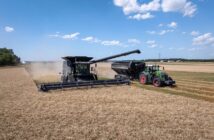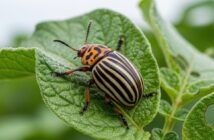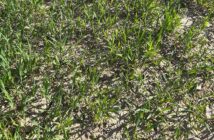Several years ago BASF Agriculture acquired Becker Underwood, the largest entomophagous nematode producer in the world and integrated it into the organisation as BASF Agricultural Specialities. Rob Storer for BASF notes that “there is increasing pressure for effective pest and disease control in all fruit and vegetable crops; there are also greater regulatory impacts starting to be seen on available chemical control options while market-driven secondary restrictions also remain. All of these impose huge practical difficulties on growers. A holistic approach is needed to address the numerous challenges imposed on the market and this means focusing on the integration of chemicals and biologicals as the only way forward. We need effective alternative options to boost yield and protect quality in these speciality crops and our Nemasys range has an important role to play. But BASF are continually looking for and developing market-leading science in both conventional and biological approaches for speciality crops.”
In strawberries as an example, last year BASF launched a new specialist fungicide for the control of powdery mildew in strawberries (outdoor and protected), protected tomato, cucumber and pepper. Charm contains the SDHI active ingredient fluxapyroxad (Xemium) and the triazole difenconazole formulated as an SC and it offers built in fungicide resistance management. It is highly effective, moving the level of disease control achievable forward. In 5 trials in strawberries in the field and in polytunnels, Charm gave better overall control of powdery mildew than the standards. For example the untreated had on average 12% powdery mildew. Applications of Charm reduced this to 2.2% after a week and 2% after 14 days compared to the standard programme which reduced mildew to just 4% after a week and 3.8% after 14 days.
It is applied at 0.6 l/ha in strawberries and 1 l/ha in tomatoes and peppers. It has short Harvest Intervals – 1 day in strawberry, 3 days in cucumber and 7 days in tomato and pepper. It can be integrated into an Integrated Pest Management (IPM) system, with safety to a long list of beneficials, including Encarsiaand Phytoseuliusand it shows low risk to pollinators, adding flexibility to the programme.
Adding to its biological portfolio and integrating into the strawberry disease programme hopefully this year will be a new biofungicide product from BASF. This is a preventative highly targeted fungicide based on Bacillus amyloliquefaciensstrain MBI600. It has reliable activity on powdery mildew, Fusarium, Rhizoctonia, Botrytis andAlternaria. Such a biofungicide adds new flexibility and choice to crop production addressing the challenges in the food production value chain. Charm has a very flexible use period and fits very nicely alongside the new Bacillus product as part of an effective multispray programme, so effectively protecting the quality and appearance of the final produce, which is so important for the retail sector.
Rob Storer is confident that in the future BASF will be coming up with further biological solutions including a biological insecticide to integrate in with conventional chemistry.




